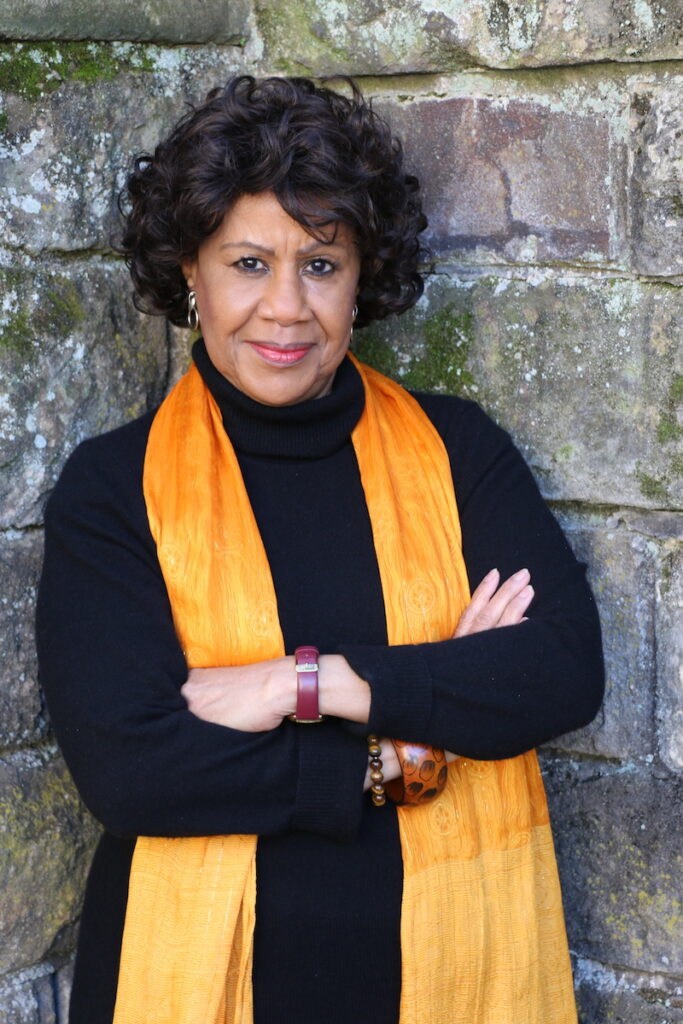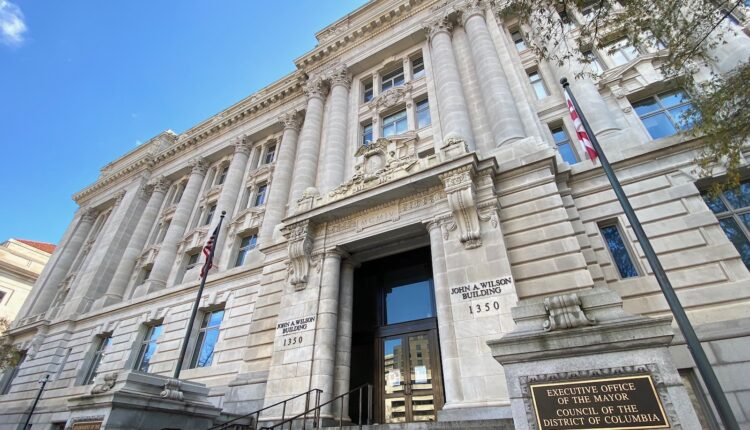jonetta rose barras: The DC Council begins its final budget-making deliberations
Ward 6 DC Council member Charles Allen touted in a press release last week that his Committee on the Judiciary and Public Safety voted to recommend to the full legislature a 172% increase in spending for violence prevention programs as part of the city’s Fiscal Year 2022 Budget and Financial Plan.
“The Committee approved a total $28.2 million budget for the [Office of Neighborhood Safety and Engagement],” Allen wrote. “This includes expanding the highly successful Pathways Program by 100 more participants annually. Pathways is a transitional employment program working intensively with those residents most likely to commit or be a victim of gun violence.”

It’s likely violence-prevention and defund-the-police advocates received that news with excitement. However, a closer read of his committee report reveals that the gigantic jump in funding was mostly a rubber-stamping of Mayor Muriel Bowser’s initial proposal.
The mayor submitted her $17.5 billion budget on May 28, a proposal I described as smart public policy and shrewd politics. Each council committee subsequently held public hearings on the portion of the budget that affects agencies under their oversight. Last week, they marked up and voted on recommendations. Today, legislators are scheduled to hold an administrative meeting where they will discuss the work of each committee and vie for the support of colleagues and Chairman Phil Mendelson. Later this month, they are expected to take their first vote on the budget; the final one will come in August.
After reviewing committee recommendations, it appears many embraced significant portions of Bowser’s proposal. The Committee on Housing and Executive Administration, led by at-large Council member Anita Bonds, pushed through the executive’s unprecedented allocation to the Housing Production Trust Fund without any major changes. Mendelson’s Committee of the Whole let stand the mayor’s proposed budget mark for DC Public Schools and changes to the funding model for the DC Commission on the Arts and Humanities, including eliminating a dedicated tax stream that had benefited mostly large organizations.
As for the Metropolitan Police Department, Allen largely endorsed Bowser’s budget, which reduced it by $32 million from this year’s allocation; he trimmed another $2.7 million. The judiciary committee supported the mayor’s decision to create emergency response teams that include mental health specialists, which would be dispatched through the Office of Unified Communications in answer to 911 calls.
Still, council members charted their own spending course, making some significant adjustments in allocations to agencies. They put money behind their favored projects while engaging in heavy and questionable horse-trading. And, they added funds for previously unfunded enacted laws.
I wrote recently about the slew of laws the council had approved during the last three years without funding them. Council members seem to have become sensitive to the criticism. There were no funds allocated in Bowser’s budget proposal for many of the measures. However, Ward 8 Council member Trayon White Sr.’s Committee on Recreation, Libraries and Youth Affairs approved $667,500 to fund the Commission on Poverty Establishment Act. The measure became an unfunded law in 2020.
Ward 1 Council member Brianne Nadeau’s Committee on Human Services voted to spend $935,000 to fully fund the Office of the Ombudsperson for Children. The mayor had vetoed its establishment; the council overrode the veto but delayed funding. Fortunately, legislators responded to strong appeals from advocates like Judith Sandalow, executive director of the Children’s Law Center.
Allen’s committee ponied up $1,096,895 to make the final installment of funding for the Campaign Finance Reform Act of 2018, ensuring the full implementation of the law. Among other things, it prohibits individuals and businesses with DC government contracts from making contributions to political campaigns.
His committee also approved a four-year phaseout of in-school police officers and voted to prohibit arrests on school property; both policies were recommendations from the council-appointed Police Reform Commission.
For the second year in a row, Allen has scaled back the mayor’s proposed expansion of the police cadet program. Bowser had proposed increasing the number of District students who could enroll in the MPD Cadet Corps to 200. However, the judiciary committee dropped that to 150 — an increase, yes, but half the one sought by the Bowser administration.
The decision not to fully fund the program is baffling. After all, cadets are DC residents; graduates generally go on to join the police department, enhancing the potential for a homegrown force more familiar with and sensitive to the city’s public safety needs. Residents need only to look at Police Chief Robert Contee — whose MPD career started as a cadet in 1989 — to understand the possibilities for success.
Allen wasn’t the only lawmaker redirecting taxpayers’ funds, however. In her committee’s recommendations, at-large Council member Elissa Silverman proposes to grab millions of dollars that businesses had paid in 2020 to the paid leave account; the pandemic hindered the use of much of that money. Considering the economic hardship experienced by all businesses in the city, Bowser had proposed returning the surplus to companies that made deposits into the system.
Who doesn’t love a tax refund, especially during economic hard times?
Not Silverman’s Committee on Labor and Workforce Development. It approved using most of that money to extend universal paid leave benefits for six weeks while adding a new category of prenatal care ($105 million total). It also voted to recommend: permanently exempting unemployment benefits from local taxes ($29 million); targeted grants for businesses ($30 million); and “Heroes’ Pay” for front-line workers ($5 million). The tax exemption and support for workers may sound good, but shouldn’t they be considered within the context of the long-term adverse rippling effect of not providing sufficient assistance to the array of local businesses that have suffered through the pandemic?
A puzzling proposal would offer incentives totaling $5.5 million for unemployed residents to complete the application for the STAY DC program. Those funds were transferred to the Committee on Human Services. However, there is no clear description of the incentives in either that committee’s report or Silverman’s recommendation.
STAY DC has been created using federal COVID-19 rescue funds. It is designed to provide rental assistance to residents who, during the pandemic, fell behind in their rent. Response by residents to the STAY DC program has been fairly modest. It is, however, one of the city’s prime anti-eviction efforts.
Why isn’t getting your rent paid incentive enough? Streamline the application process if that’s merited, but that should not require additional taxpayer money.
Council Chair Pro Tempore Kenyan McDuffie, who heads the Committee on Business and Economic Development, led his own financial sweep. He snatched anticipated project fines and penalties from the Department of Small and Local Business Development and the uncommitted balance from the agency’s FY 2021 budget to finance the Small Business Capital Access Fund. McDuffie has consistently argued that one of the biggest challenges for small minority businesses is securing sufficient cash or capital to either launch their operations or sustain them during hard times. The fund is designed to give them a leg up.
His committee also approved funding for his new and favored legislation, including the Child Wealth Building Act of 2021 — also known as Baby Bonds; the allocation of $9 million is a far cry from the total of $35 million needed for full implementation, however. The other special set-aside is $1.5 million to help finance Guaranteed Income pilot programs.
Not to be ignored in the budget process is the horse-trading in which members engaged, using taxpayers’ money for their pet or ward-based projects. Allen sent $1 million from his committee to at-large Council member Robert White’s Committee on Government Operations and Facilities to cover the cost of an HVAC unit at Eastern Market, which is in Ward 6. Another $28,080 went to cover the Capitol Hill Cluster School’s outstanding balance for the Capitol Hill Classic. And $150,000 was sent to the Committee on Recreation, Libraries and Youth Affairs to provide an annual grant to an organization to plan and promote events at Eastern Market Metro Park.
Ward 3’s Mary Cheh, chair of the Committee on Transportation and the Environment, has also had eyes on her ward; she sent $450,000 to the economic development committee to cover the cost of clean teams along the Wisconsin Avenue NW corridor and in the Palisades commercial district. Nadeau also sent $375,642 for clean teams in her ward.
It all seems so incestuous — a process that cries out for reform. But what do I know? I’m not running for re-election.
jonetta rose barras is an author and freelance journalist, covering national and local issues including politics, childhood trauma, public education, economic development and urban public policies. She can be reached at thebarrasreport@gmail.com.



Comments are closed.